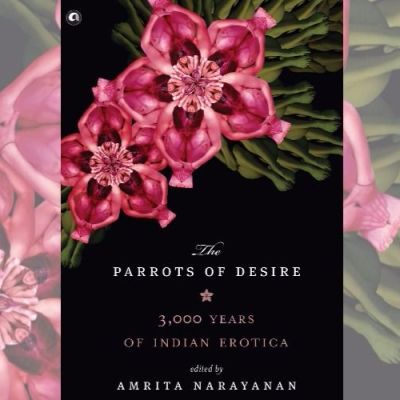Literature
This question of appropriateness is, for me, at the heart of all questions around sexuality. Each of us carries within us our own private benchmarks for which expressions of sexuality we find appropriate, and which ones, in turn, have crossed an invisible line. The ones we believe belong across the border, in the land of the inappropriate, of the too much.
We need more spaces for marginalized people to express themselves. Although pop culture and mainstream media have yet to feature the diversity and representation we crave, fan fiction can help to fill in those gaps. And that is nothing short of feminist.
Fiction is often relegated to a secondary stow because fact-based forms of knowledge are becoming more and more valued. To be informed is to stay with the facts. Yet I think fiction allows us to stay just about as informed.
Standing behind the camera, with a microphone in one hand, I have felt this power imbalance first hand. The camera may humanise the person in front of it more than a text analysis would, but the modes of production remain in someone else’s hands.
We are, all of us, trying to hold steady, and to hold space for each other and for ourselves. And so, instead of trying to put together a collection of ‘all new’ articles, this time we are republishing some ‘ever fresh’ ones on the theme of Sexuality and Representation.
As we see through this issue of In Plainspeak, stories have in them the power of exposing brutal truths about society and therefore also bring with them the possibility of reform, change, and hope, and when not possible, temporarily escaping into other worlds.
Undoubtedly, LGBTQ+ literature and writing in India has witnessed an ‘explosion’ in the past two decades, and the trends in contemporary publication promise consistent growth in the future too. However, issues of queer representation in existing literature, and especially contemporary literature, need to be continually invested in, for literature is a key marker of society’s outlook on and reception of such sensitive subjects as homosexuality and ‘queer’-ness
Considering how sexuality was a running (and selling) theme in pulp fiction stories, and female sexuality was employed as a means to titillate and attract readers, the covers often reflected this.
The story is so well told and is written with such a light, deft hand that it is almost easy to miss what makes it so quietly radical. To review it within the scope of exploring the coming together of literature and sexuality we must begin with its central cast of characters – the widows.
Much like any good erotic encounter, Balli Kaur Jaswals’ 2017 novel, Erotic Stories for Punjabi Widows, is a delightful romp that comes to a satisfying, sweet climax and an urge to fall back on the pillows.
While we’ve grown used to hearing porn blamed for society’s ills, it’s now the medium’s comparatively matronly cousin – romance novels – that have come under scrutiny.
Every contemporary debate, from homophobia and intolerance, finds an echo in the Rajasthani writer’s stories. Vijaydan Detha’s Dohri Zindagi starts…













